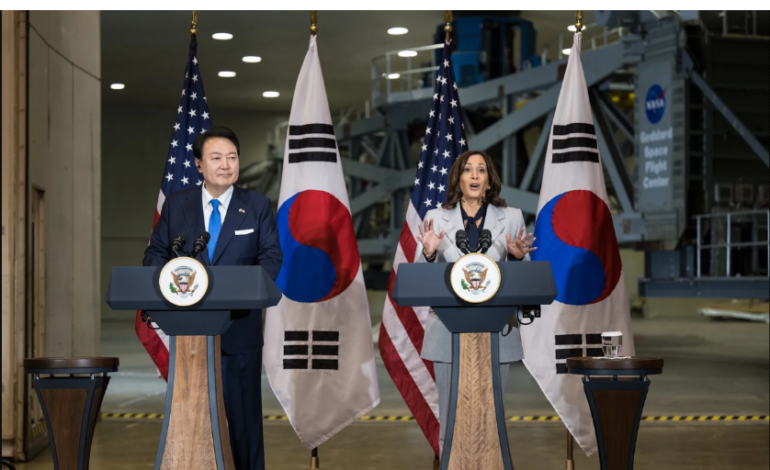
South Korean and US Space Agencies Collaborate on Research Initiatives
The Korea Aerospace Administration (KASA) has signed a joint statement with the US National Aeronautics and Space Administration (NASA) to enhance cooperation in various areas of space and aerospace research. The agreement was finalized at NASA headquarters in Washington, DC, during discussions between KASA chief Yoon Young-bin and NASA Administrator Bill Nelson.
The two agencies explored collaborative opportunities in deep space and lunar exploration and pledged to strengthen their leadership in international space efforts, according to Yonhap news agency. They also agreed to identify innovative projects in fields such as space life sciences and lunar surface science, as well as the joint use of deep space antennas.
In addition, they committed to working together on space sustainability, focusing on developing standards for sharing information related to space debris reduction, traffic management, and environmental protection.
A separate agreement was made to jointly design a mission concept for operations at the Lagrange point L4, where the gravitational forces of the Sun and Earth are balanced. KASA also expressed its intention to sign a research agreement with NASA to enhance Korea’s involvement in the US Artemis moon exploration program.
Recently, KASA unveiled an ambitious vision for a competitive space transportation system and an exploration strategy aimed at joining the elite in the global space race. Currently, South Korea’s homegrown rocket, Nuri, has a shipping cost of $24,000 per kilogram, while SpaceX offers transport for approximately $2,000 to $3,000 per kilogram.
KASA is developing a comprehensive roadmap for deep space exploration, including missions to Lagrange point L4, the Moon, and Mars. Earlier this year, the agency announced plans to send a spacecraft to L4 by 2035 to observe the Sun, collaborating with major space powers such as the US, Japan, and the UK.